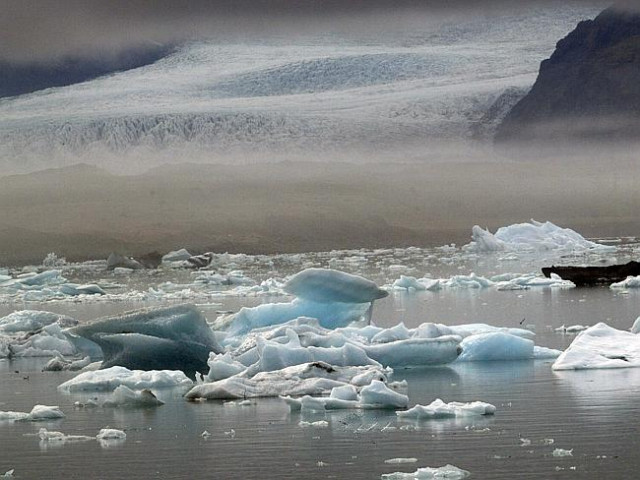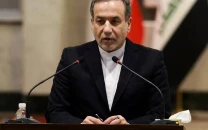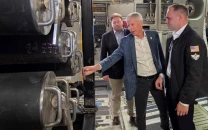Scientists point to narrowing gap for averting climate disaster
Michel Jarraud spoke about rising sea levels, acidic oceans and ever more frequent extreme weather in a warmer world

Icebergs break off the Vatnajokull Glacier before floating to sea. PHOTO: AFP
"The world is at a critical crossroads," UN Secretary-General Ban Ki-moon said in a message read to the academic gathering.
While nations have committed to limiting average global warming to two degrees Celsius (3.6 degrees Fahrenheit) over pre-Industrial Revolution levels, research shows the world is heading for double or more that on current greenhouse gas emission trends, he said.
And based on emissions curbs pledged so far, the combined effort will likely "not be sufficient to meet the 2 degree target," said Ban.
"Clearly strong action still needs to be taken."
The four-day international science conference opened Tuesday in the French capital, which will also host the November 30-December 11 UN climate conference for 195 nations to finalise a new, global climate pact.
Dubbed "Our common future under climate change", the gathering of academics from nearly 100 countries will review the most up-to-date science on climate challenges and solutions to feed into the Paris pact.
"It is not scientists' role to tell governments what to do in December, but to illuminate the choices - each with different levels of cost and risk, as well as opportunities to help build robust economies and vibrant communities," said Chris Field, chairman of the conference's scientific committee.
Read:Global consultation: Citizens deliberate on climate and energy
The gathering comes eight months after the UN's Intergovernmental Panel on Climate Change (IPCC), brought out a new report, widely considered the bible of climate science, which warned that the window for 2C was fast closing.
Emissions will have to drop 40-70 percent between 2010 and 2050, and to zero by 2100, it said.
"The emissions gap - the difference between energy reductions pledged by parties and what is needed to stay within two degrees -has been increasing," said Ban.
So too has the gap between funding and capacity needed, and what has been committed, for countries to adapt to climate changes that can no longer be avoided.
"To bridge these gaps it is critical to fill holes in funding, in knowledge, in technology in capacity and in trust," said the UN chief.
"Science can help fill the holes in knowledge and technology."
Read:Agriculture sector : Ministry, UN to work together to tackle climate risks
World Meteorological Organization (WMO) head Michel Jarraud painted a picture of rising sea levels, acidic oceans and ever more frequent extreme weather events in a warmer world.
"It is still possible to change course and limit climate change to a reasonable level," he told the conference. "But time is short."
Flavia Schlegel, assistant director-general of the UN's Educational, Scientific and Cultural Organisation (UNESCO), underscored the role of scientists in providing an informed basis for political decisions.
"Only an ambitious agreement on reducing CO2 emissions will move the world in the right direction of sustainable development," she said.
"Our future depends on the linkages we build between science and policy."
The Paris pact, which will come into effect from 2020, will be supported by a roster of self-determined national carbon-cutting pledges due to be submitted between now and the end of the year.


















COMMENTS
Comments are moderated and generally will be posted if they are on-topic and not abusive.
For more information, please see our Comments FAQ